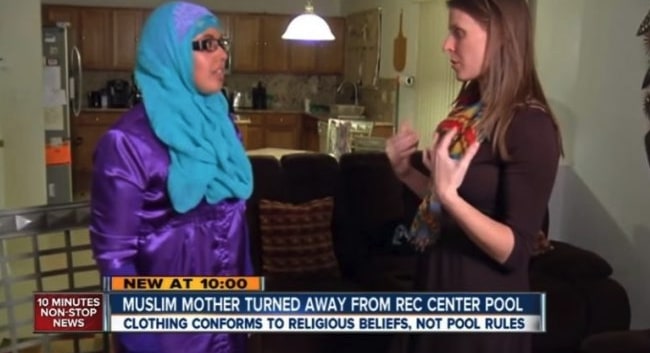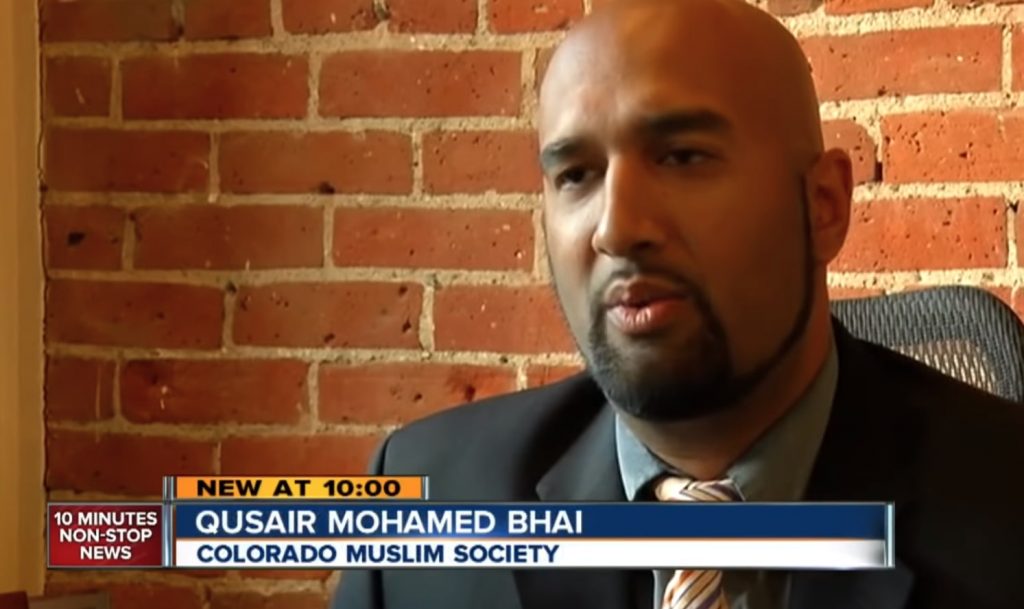Sabah Ali, a Muslim lady from Colorado, was refused access to the pool at her neighborhood leisure facility in Commerce City.
Ali asserts that when she took her family to swim at the Commerce City Recreation Center on a Sunday afternoon, she was refused entry despite her claims that she asked if she could rather wear just her shirt and pants and remove the dress, but rec center employees pointed to pool rules that stated specified swimming attire only.
She told them she’d take off the long dress if that was their worry, and that she had clothing on underneath, Ali stated. But they said if they let her, everybody would question why they let them and not others. After Ali’s request was refused, she went public, insisting that one shouldn’t have to be “half-naked” to swim.
The city owns the local leisure facility that turned Ali away, and a Commerce City representative responded to the woman’s requests. Simply put, she referred to the pool rules that are in place to safeguard people and stated that the rules, which prohibit wearing street clothing, are best practices for public health and safety.
Moreover, the regulations are not discriminatory, but are uniformly implemented. Yet, Sabah Ali maintains that this is a case of religious discrimination, and human rights attorney Qusair Mohamed bhai concurs. The city, on the other hand, is holding fast, insisting that the laws are in place for a purpose and that others who are not of the Islamic religion have been turned away under the same criteria.
Why does she have to swim half naked? Ali questioned, eventually renting a hotel suite to swim with her kids in a private pool.
To spend time with her children? She want the same rights as every other citizen, she continued, despite the fact that the regulations are equally implemented. However, she seemed to have overlooked something else as well.
According to Commerce City Spokesperson Michelle Halsted, wearing outdoor clothing increases the likelihood of polluting the water and transmitting waterborne infections.
In response to the claims of discrimination, Halsted stated that full-body swimsuits, including an Islamic burkini, are permitted in the pool. In other words, nobody was compelled to swim “half-naked.”
Although one would think that full-body swimsuits would be an alternative for Sabah Ali and anyone else who doesn’t want to swim “half-naked,” the Muslim woman continues to assert that she was discriminated as a result of her Islamic dress, despite the fact that the Islamic burkini, a loose-fitting full-body swimsuit with a hood made for Islamic women, is permitted.
Nonetheless, civil rights attorney Qusair Mohamed bhai believes that public-place regulations should be changed to assure that Muslims feel welcomed. As a consequence of Sabah Ali’s statement, the city decided to revise its swimwear brochure to include full-body swimsuits, or burkinis, in its list of approved swimming clothing while still emphasizing that street clothes, especially full Islamic dress, are not suitable for the pool.







